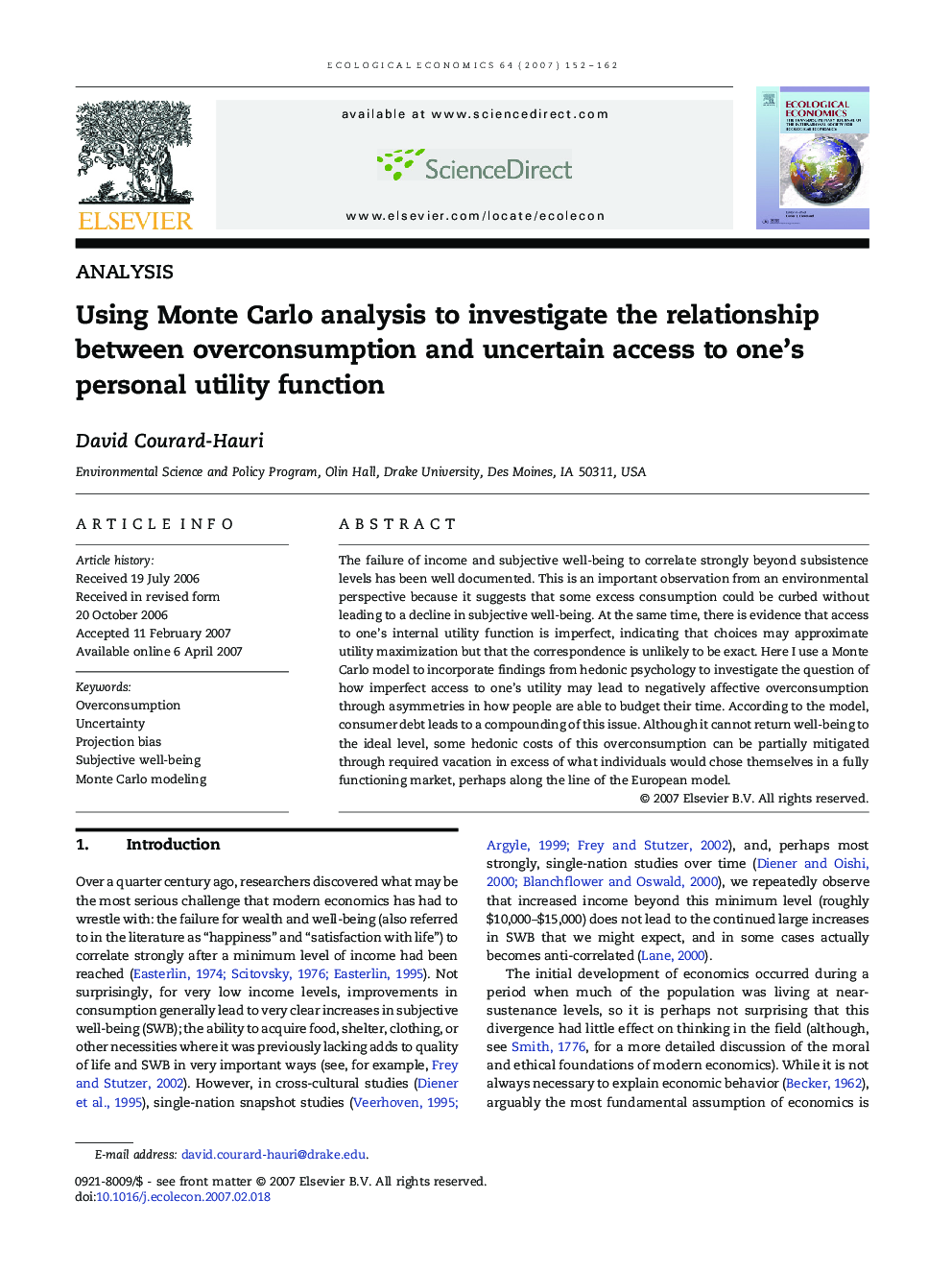| Article ID | Journal | Published Year | Pages | File Type |
|---|---|---|---|---|
| 5052122 | Ecological Economics | 2007 | 11 Pages |
The failure of income and subjective well-being to correlate strongly beyond subsistence levels has been well documented. This is an important observation from an environmental perspective because it suggests that some excess consumption could be curbed without leading to a decline in subjective well-being. At the same time, there is evidence that access to one's internal utility function is imperfect, indicating that choices may approximate utility maximization but that the correspondence is unlikely to be exact. Here I use a Monte Carlo model to incorporate findings from hedonic psychology to investigate the question of how imperfect access to one's utility may lead to negatively affective overconsumption through asymmetries in how people are able to budget their time. According to the model, consumer debt leads to a compounding of this issue. Although it cannot return well-being to the ideal level, some hedonic costs of this overconsumption can be partially mitigated through required vacation in excess of what individuals would chose themselves in a fully functioning market, perhaps along the line of the European model.
